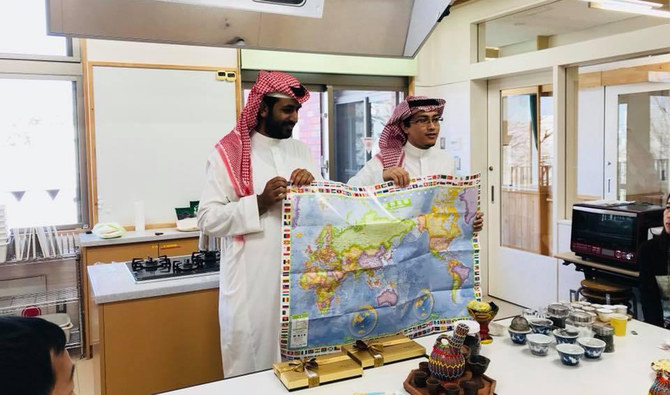JEDDAH: As Saudi Arabia begins to move away from an oil-based economy, business ventures are being explored outside the hydrocarbon sector. This means opportunities for both Saudi entrepreneurs and aspiring investors in the Kingdom’s economy.
For many Saudis, this is as good a time as any to look to countries that offer business potential and unexplored opportunities. One such destination is Japan.
Running an international business is always a high-risk, high-reward proposition. Unlike other foreign countries, cultural and language barriers make conducting business with Japanese hard for Saudis.
Luckily, there are several Saudis in Japan working on overcoming those barriers to make the country’s market more accessible to the region.
Abdulaziz Alforieh is a Saudi who has lived in Japan for 12 years. Fluent in Japanese, he put his language skills to good use by working for a real-estate company that helped Arab students and expats find housing in Japan.
“Finding suitable housing, especially for foreigners, can be quite difficult in Japan. I would help by translating applications, helping people get in touch with rental companies, and so on,” he told Arab News.
He later expanded his activities and worked in tourism, translation and consulting services for Japanese companies interested in working with Saudi firms.
“I work as a kind of liaison between Japanese companies who are looking for business partners or investment opportunities, and vice versa,” he said.
He says the work is very rewarding but can also be challenging. Language barriers, cultural divides and differences in work attitudes can all pose problems.
Alforieh says there is a crucial difference in Japanese and Arab approaches to business. Arab businessmen are more likely to be lenient in negotiations in order to wrap up a deal quickly, he said. By contrast, the Japanese are less likely to make concessions during negotiations and prepared to wait for a more agreeable outcome.
“The Japanese are very systematic, which can be both a pro and a con. In most Arab countries, particularly in Saudi Arabia, our operations seem almost easygoing in comparison. Business in Japan is very organized, but can come across as overly strict to some foreigners,” he said.
Alforieh, who sees himself as perfect link between the two cultures, says the Japanese system can seem rigid to outsiders, but becomes easier with time to understand the intricacies of the country’s business culture.
“In general, the best advice I can give to anyone who wants to do business in Japan is to be very patient,” he told Arab News.
“If you’re looking for quick business, or someone who will hand over a contract after a day or two of negotiating, Japan isn’t for you. But if you’re willing to wait it out, the rewards can be great.”
Alforieh’s opinion is seconded by Furat Bantan, who has 13 years of experience in various jobs in Japan. Though currently working as a translator for the Embassy of Lebanon, he has in the past done consultation work for clients similar to that performed by Alforeih.
“The biggest difference between the Arab world and Japan is that people in Saudi Arabia generally want things done very quickly. In Japan, people are slow and steady in order to ensure that business risk is minimized,” he said.
Bantan points out that while relations between the two countries are getting warmer, there is much they need to learn about each other.
“The Japanese don’t know much about Saudi culture, so sometimes connecting them to people in Saudi Arabia can be a little tough. But Japan is full of amazing opportunities for any Arab, and there’s a lot of business to be done if you know who to contact,” he told Arab News.
Bantan looks forward to seeing more Saudi-Japanese business deals in the coming years, and is eager to facilitate them in any way possible.
“I hope that in the future that people like Alforieh and I can be the point of connection for Arabs who are interested in doing business with Japan,” he said.

























